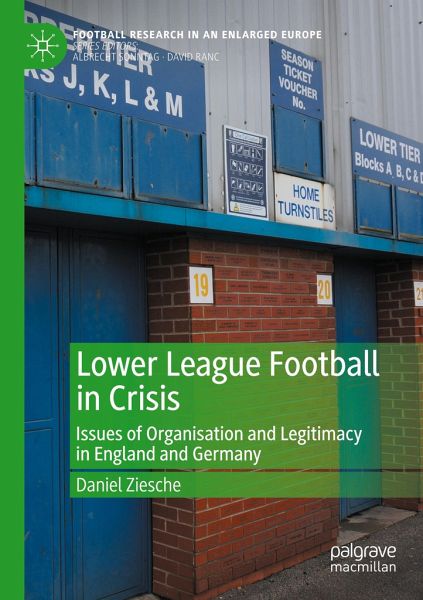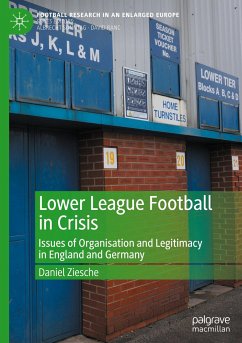
Lower League Football in Crisis
Issues of Organisation and Legitimacy in England and Germany
Versandkostenfrei!
Versandfertig in 6-10 Tagen
76,99 €
inkl. MwSt.
Weitere Ausgaben:

PAYBACK Punkte
38 °P sammeln!
While the field of football studies has produced an abundance of literature on professional, top-league football, there is little research output to do with the non-top level football. This book explores the relationship between the top and lower leagues, laying open the drastic schisms that exist between the different levels.The study links the developments at the top level of English and German football in the past 30 years to transformational processes in lower league football. Illustrating how the hegemonic status of top football weighs hard on the spheres below, it depicts how it also ser...
While the field of football studies has produced an abundance of literature on professional, top-league football, there is little research output to do with the non-top level football. This book explores the relationship between the top and lower leagues, laying open the drastic schisms that exist between the different levels.
The study links the developments at the top level of English and German football in the past 30 years to transformational processes in lower league football. Illustrating how the hegemonic status of top football weighs hard on the spheres below, it depicts how it also serves as a blueprint for lower league football clubs' strategies in coping with a threefold dilemma of institutional legitimacy that shows itself in economic, cultural and social dimensions. Taking the different club structures in both national contexts as a starting point, it portrays both the efficacy of institutional frameworks and how these can be challenged from below. This research will be of interest to students and scholars across football studies, sports studies, the sociology of sport, and organisation studies.
The study links the developments at the top level of English and German football in the past 30 years to transformational processes in lower league football. Illustrating how the hegemonic status of top football weighs hard on the spheres below, it depicts how it also serves as a blueprint for lower league football clubs' strategies in coping with a threefold dilemma of institutional legitimacy that shows itself in economic, cultural and social dimensions. Taking the different club structures in both national contexts as a starting point, it portrays both the efficacy of institutional frameworks and how these can be challenged from below. This research will be of interest to students and scholars across football studies, sports studies, the sociology of sport, and organisation studies.














